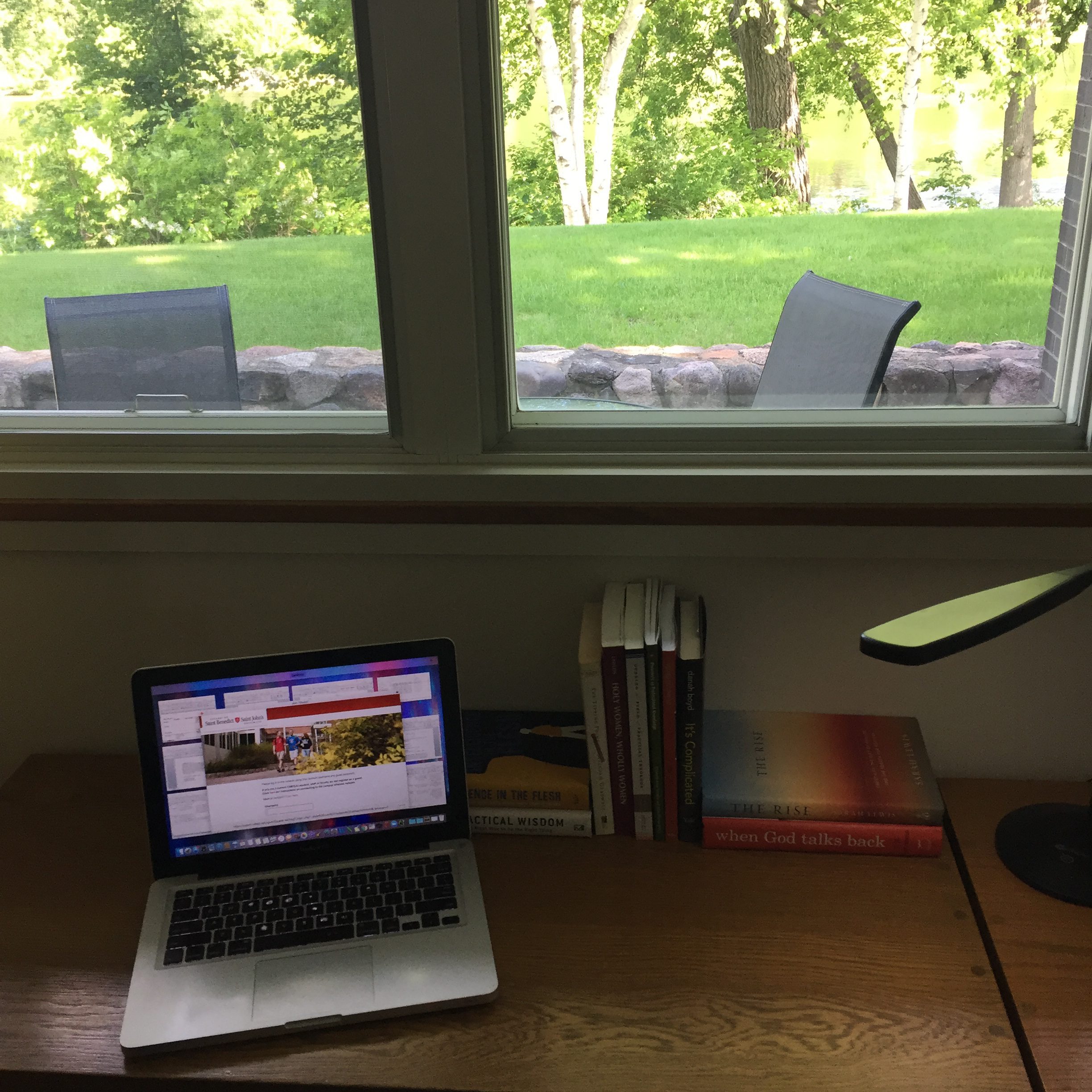Desk
A clean desk invites fresh writing. And it can be a ritual or signal that it is the right time and place to write.
Recently I visited a man who has started numerous Montessori schools. If he said to me once in that lunch hour, he said it seven times: “place is everything.” He wanted me to see the necessity of structure for students to pursue their learning in freedom. Without enough structure, freedom turns to tyranny.
The same is true for a good writing habit. To write with freedom and fluency, two key features of consistent and productive writing according to psychologist, Robert Boice, who studied the habits of writers for three decades, we need a certain amount of structure to support the practice. Having a place to go evokes and creates a space for writing.
Writers often say, “I need a change of scenery.” Or they say, “I just move from coffee shop to coffee shop so I can stay productive.” The mobility strategy can work, but can it last? Certainly there are times when I need a change of setting. Some days I need to write at home on my back porch when the weather is just so. Yet it is the consistency of knowing I can arrive each morning in my office, and I can find a ready and waiting desk that consistently offers me an invitation to write.
This ritual began long before I had an office.
Three Things

In order to complete my dissertation, I needed three things. Reliable, trustworthy care for my daughter, a part-time job at Vanderbilt’s Center for Teaching, and desk where I could write consistently each day. The desk that fit the bill offered me a view of a small grove of oaks and hickories. I could see the spire of Benton chapel punctuating the blue skies.
Each afternoon following consultations with teachers and graduate students learning to teach, I would go to the Divinity library, open up my computer at my favorite desk, and begin to type. On days when I did not have to work at the CFT first, I would go straight into the library, sit down at my desk, and begin to write. One of the gifts of that space, in addition to the fantastic view, was its perpetual clean and waiting surface. I couldn’t leave my things strewn about. Rather I needed to pack up at the end of the day, leaving the space waiting for me the next time.
The clean smooth surface of the desk became a signal to begin my writing each day. Distractions were minimal. Writers need a welcoming space for our work. But when we allow our desks to pile up with unfinished tasks and unfiled papers, they distract and prevent the hard yet important work of writing.
Desktop
Prior to finishing my dissertation, I often wrote at home on a very messy desk. It’s a delicate balance. I had to leave the desk somewhat messy because if I started taking time to clean it I would find myself an hour and a half later having only cleaned one small section of the desk and filed a few papers, but having written nothing. So I learned to write even amid the mess. In that way the “desktop” on my computer served as a welcoming space, a desk on which I could write. I took my portable desk to the coffee shop, and into classrooms, and out onto the porch.
So what I’m suggesting to you is not a law or even a rule, but rather it is an embodied wisdom, a knowing embedded in places and objects. It is a kind of seeing the right thing to do, which leads to doing. And if the right thing is the writing thing, then it is the space of a desk which welcomes me each day to do it. Laptop, tablet or physical desk, each one can offers a space with minimal distractions and an openness that stretches out a welcome, a signal that it is time to write.
So. How is your desk looking?
This post brought to you by the D.




